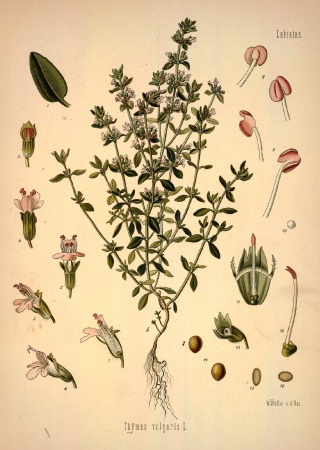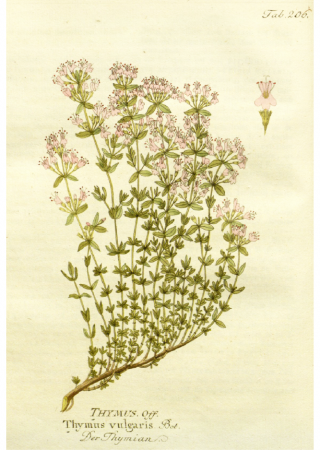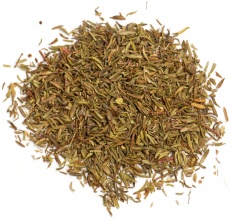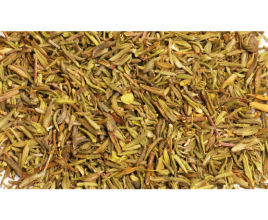Thyme
- …in France, thyme is called "poor man's penicillin"?
- …there are many types of thyme with different aromas, such as lemon, orange and fruit?
- …thyme is one the strongest antibiotic herbs?
- …thyme stimulates the production of white blood cells, which strengthens the body's immune system?
- …thyme is a stimulant during sex?
- …there are very few foods that cannot be improved by the addition of thyme?
- …Arab cooks call thyme "zatar"?
- …thyme as a spice is the fresh or dried leaves of the Thymus vulgaris plant?
Squash with fresh thyme
1 kg young squash
4 tablespoons butter
2 tablespoons finely chopped fresh thyme leaves
pepper, salt
Clean squashes and cut into 2.5 cm thick slices. Blanch for 5 minutes in boiling salted water. Dry and place in pan with melted butter and thyme, salt and pepper to taste, cover and simmer until tender (about 5 minutes). Serve warm.
The medicinal and disinfectant properties of thyme have been known for thousands of years. Egyptians used the chopped plant during embalming, Greeks in baths and mainly as a fumigant. Romans used thyme as a deodorant and disinfectant. The word thymus comes from the Greek word thymos meaning life force the source of strength and might. Roman legionnaires and gladiators bathed in thyme spas, which were supposed to guarantee courage and strength necessary for victory. During the Middle Ages, it was a custom to carry sprigs of thyme as protection against illness.




